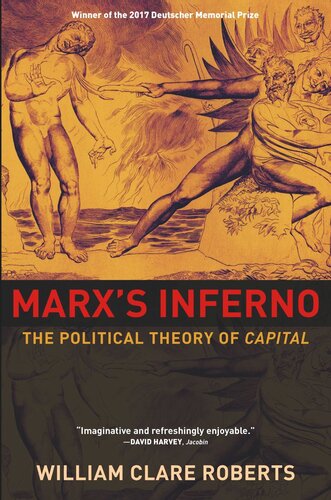

Most ebook files are in PDF format, so you can easily read them using various software such as Foxit Reader or directly on the Google Chrome browser.
Some ebook files are released by publishers in other formats such as .awz, .mobi, .epub, .fb2, etc. You may need to install specific software to read these formats on mobile/PC, such as Calibre.
Please read the tutorial at this link: https://ebookbell.com/faq
We offer FREE conversion to the popular formats you request; however, this may take some time. Therefore, right after payment, please email us, and we will try to provide the service as quickly as possible.
For some exceptional file formats or broken links (if any), please refrain from opening any disputes. Instead, email us first, and we will try to assist within a maximum of 6 hours.
EbookBell Team

5.0
60 reviewsMarx’s Inferno reconstructs the major arguments of Karl Marx’s Capital and inaugurates a completely new reading of a seminal classic. Rather than simply a critique of classical political economy, William Roberts argues that Capital was primarily a careful engagement with the motives and aims of the workers’ movement. Understood in this light, Capital emerges as a profound work of political theory. Placing Marx against the background of nineteenth-century socialism, Roberts shows how Capital was ingeniously modeled on Dante’s Inferno, and how Marx, playing the role of Virgil for the proletariat, introduced partisans of workers’ emancipation to the secret depths of the modern “social Hell.” In this manner, Marx revised republican ideas of freedom in response to the rise of capitalism.
Combining research on Marx’s interlocutors, textual scholarship, and forays into recent debates, Roberts traces the continuities linking Marx’s theory of capitalism to the tradition of republican political thought. He immerses the reader in socialist debates about the nature of commerce, the experience of labor, the power of bosses and managers, and the possibilities of political organization. Roberts rescues those debates from the past, and shows how they speak to ever-renewed concerns about political life in today’s world.